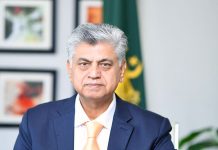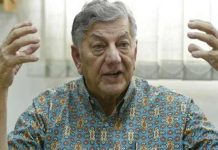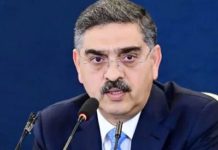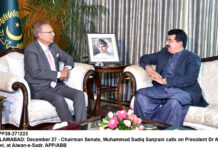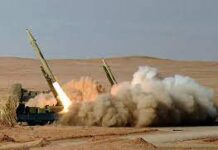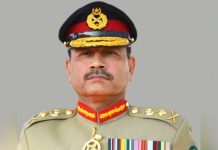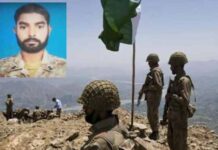Modi-led Hindu nationalist Indian government’s imposition of stringent curfew, after revocation of articles 370 and 35A of its constitution through a rushed presidential decree on August 5, entered its 22nd consecutive day on Monday. The people of the region have been suffering from immense difficulties due to communication blackout and shortage of essential commodities including baby food and life-saving medicines.
As Indian authorities plan silencing the people of Occupied Kashmir from holding demonstrations against the government, due to severe blockade, a famine-like situation has emerged as people have been facing severe shortage of essential commodities including baby food and life-saving medicines and Occupied Kashmir represents a humanitarian crisis in all its manifestations. Hundreds of thousands of people are besieged and Jammu and Kashmir has become a big prison for its inhabitants.
Over 10,000 Kashmiris including hundreds of political leaders and workers have been detained. The jails and police stations have run out of space and many detainees have been lodged in makeshift detention centres. A hotel in Srinagar being used as a makeshift detention centre has been declared a sub-jail. Around 50 pro-India political leaders are detained in the hotel.
On the other hand, the people of Occupied Kashmir have been warned to beware of Indian collaborators who are trying to approach their Indian masters to bring the members of extremist Hindu organisations like Rashtriya Swayamsevak Sangh (RSS) and other Hindutva forces to the territory to enslave Kashmiris and change their demography. The warning has been issued through posters and handbills by Hurriyat activists. The Indian collaborators have been asked to adopt Hurriyat line and in case they provide any facilitation to Hindutva forces, they would face serious consequences.
Since August 4, the Modi-led Hindu nationalist government has been seeking to tighten its grip on the region.
Indian paramilitary personnel have been raiding on the houses, harassing women and detaining people to spread fear for silencing protests for independence.
Small groups of armed soldiers, many kitted out in full riot gear, were positioned every few metres in the old quarter, and all stores other than a handful of pharmacies were closed.
The authorities have turned the valley, particularly Srinagar, into a military garrison by deploying thousands of Indian troops and police personnel in every nook and corner.
In Srinagar, troops and policemen are patrolling the deserted streets, lanes and by lanes to thwart any attempt of people to stage anti-India demonstrations.
The authorities also continue to impose information blockade as TV channels and internet links remain snapped and restrictions on media continue. Local newspapers even failed to update their online editions during all this period while majority of them could also not be printed due to curfew and other restrictions.
Markets and shops are closed while transport is off the roads since then. Local journalists complain that Indian forces do not allow them to perform their duties.
The withdrawal of the special privileges of Muslim majority Kashmir means residents of all parts of India can buy property and compete for government jobs and college places, raising fears that it will be flooded with outsiders.
Modi’s surprise move has increased tensions with nuclear arch-rival Pakistan after India committed gross human rights’ violations in the territory at the heart of more than 70 years of hostility between them.


